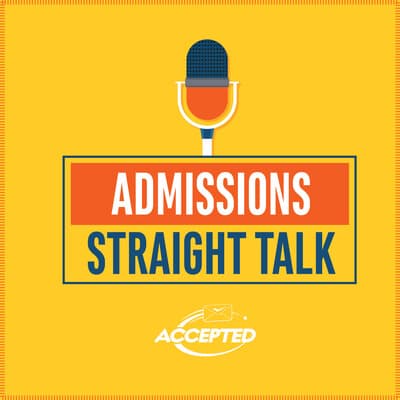Education
Can students make a difference during the current pandemic? [Show summary] Jalen Benson, founder of the National Student Response Network and first-year med student at Harvard, discusses what health care volunteer opportunities are out there and how to find them during the Coronavirus outbreak. Listen in. Finding volunteer opportunities for premeds despite COVID-19 [Show notes] Here's a common scenario we're hearing about from premeds and others in healthcare fields. It goes like this: “I had a great volunteer community service gig lined up for the spring and summer, but it was canceled due to COVID. What can I do to get this kind of experience and apply effectively?” Our guest today is Jalen Benson, founder of the National Student Response Network. Jalen is a first-year student at Harvard Medical, after completing his undergrad in biology at Dartmouth and spending two years as a research assistant at Stanford University. When COVID-19 hit and students went home early, he founded the NSRP, a national network of medical, nursing, and PA students in all fifty states that helps connect volunteers with the organizations that need them and might not know they’re there. While many traditional internships and volunteer opportunities are shelved, there are still many ways you can help. The trick is to know where to ask, and realize that even if you can’t go on a far-flung internship, there are many local organizations that need help right now. Can you tell us a little bit about your background outside of medicine? [1:55] I'm from the town of Pensacola, Florida. It's in the panhandle of Florida between Tallahassee and New Orleans, so way, way at the far western end. Nice and warm, nice sunny beaches. So growing up in Pensacola, I really could never be still. I loved playing soccer, and I was always doing that and running around doing a million and one things from history, to working at the beach. And my family was mostly me, my younger brother, and my mom. And going to college I got involved more in the outdoors, and now I love hiking, and skiing, and the whole nine yards. All the things you get into going to New Hampshire when you see snow for the first time. My parents didn't go to college, so there was no warning of what to do or how to do this, it was, "All right, it sounds great." I visited, it looked good to me. I didn't think about what snow was, I hadn't seen it before, but I adjusted and I learned to love it, and I learned to play ice hockey, and ski, and go hiking. My parents still don't know quite how that happened, but here we are. When did you decide to become a doctor? [3:21] It's funny, I spent most of my life trying to avoid medicine. My mom is an MRI tech, and she raised us primarily by herself, so that meant a lot of weekends when she was on call, we were on call. Going to the hospital and sitting in waiting rooms, and I was like ... I didn't want to do this. I thought I was going to go and do law. And then as I got older, I fell more in love with science. And what struck me about medicine was the idea of the trust the patient gives you and the story. When you talk to patients it's not like, "Oh, my leg is broken and fix it," because I can fix problems as an architect or a lawyer, or anything else. But when they say the leg is broken they're saying, "It's broken, and it's really important because my daughter has a recital next week, and my wife is sick so I need to be able to go to the recital on her behalf," and so how to make sure we're doing that. The trust you get from patients and those pieces of stories you get, that's what really made me know that this is what I want to do. You help people now, get a piece of their story, and then they leave better for having seen you. Hopefully. Were you considering a career in research when you went to Stanford and did those two years, or were you always convinced that the clinical path was the path for you? [4:21]

